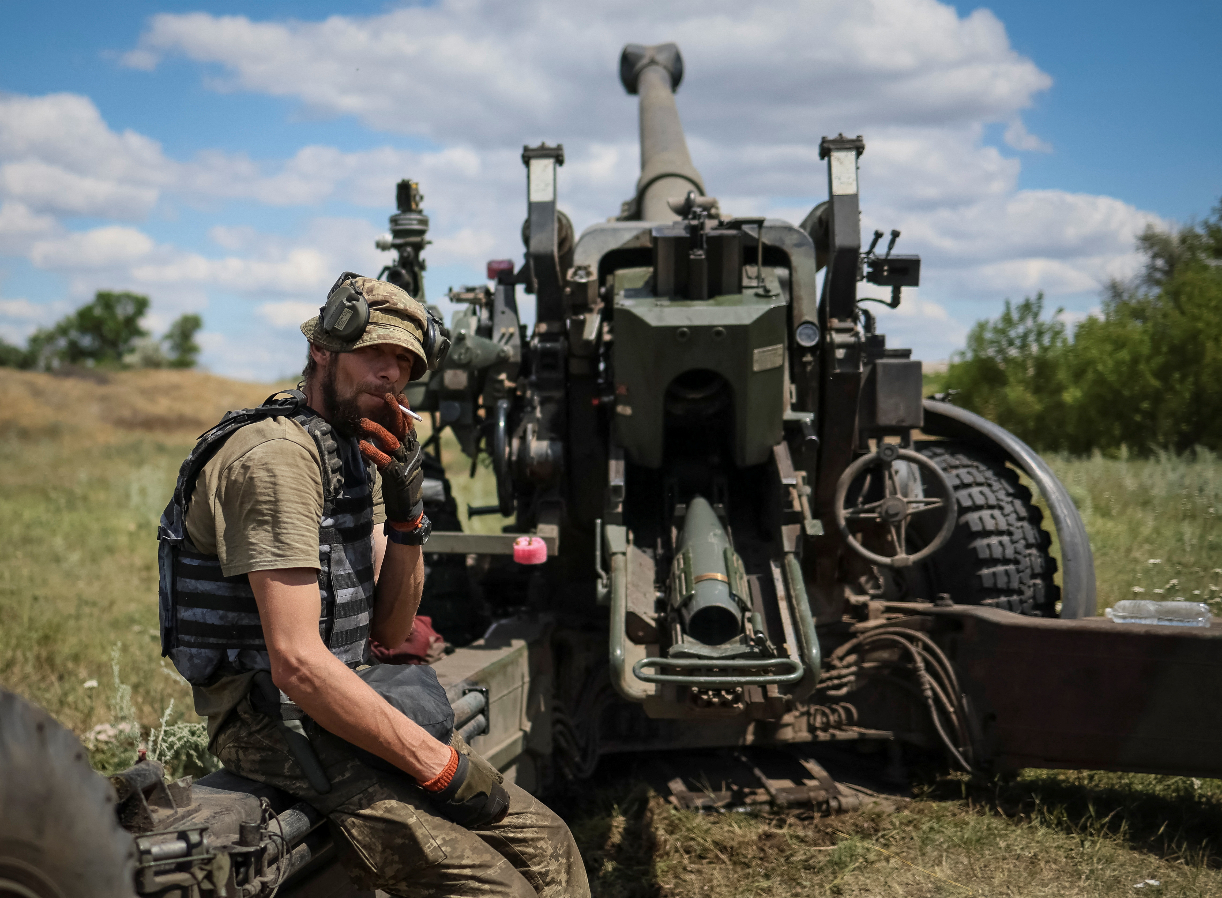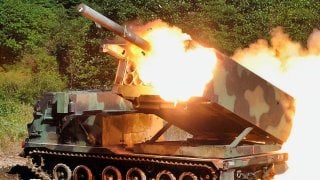The Kursk Offensive Exposes Russian Military Weakness and Public Apathy
The immediate military lesson from the Kursk offensive is relatively straightforward. For about a month, Ukraine forces occupy a part of Russia and the Russian army cannot force it out. What’s worse, it has yet to stabilize any defense line.
Ukraine’s Kursk Offensive: A New Phase in the Russia-Ukraine War?: Four weeks in, Ukraine’s Kursk offensive, which penetrated ten to twenty miles deep into Russia, allows us to draw several conclusions. First, it demonstrated that the Russian army, one of the most formidable military forces in the world before the war, could no longer respond swiftly and decently.
Second, the war with Ukraine remains deeply unpopular in Russia: the first invasion of Russia proper since World War II has not sparked any patriotic response.
Third, Putin does not feel any threat to his power and is under no pressure to change his current course. The success of Ukraine’s Kursk incursion has not yet forced Putin to do anything differently.
By the end of July 2024, the Russia-Ukraine war, in its third year, seemed to be stalled in an attritional warfare in Eastern Ukraine. At the enormous cost, of thousands of losses, the Russian army was grinding forward at the pace of one or two miles per week, or even slower. Improved air defense has not been able to fully protect civilians and energy infrastructure from missile and drone attacks on Ukrainian cities, but they are fighting back with much more force than before. Meanwhile, Ukrainian-made drones hit oil and gas refineries deep in Russia. Still, the media narrative was of Ukraine slowly but surely losing the war. The Kursk Offensive changed that.
The immediate military lesson from the Kursk offensive is relatively straightforward. For about a month, Ukraine forces occupy a part of Russia and the Russian army cannot force it out. What’s worse, it has yet to stabilize any defense line. The progress of the Ukrainian forces is slow, and the Russian territory is vast, so there is no threat to major cities or communication lines, yet its progress nonetheless.
Who would have thought, back three years ago, that the Russian army would not be able, for weeks, to stabilize frontlines inside Russia? The Kursk Offensive is a visual demonstration of Ukraine’s army's capability to wage modern maneuvers warfare with combined armed forces.
Another major surprise – at least from the pre-war perspective – is the total absence of any notable response from the Russian population. Ukrainian army controls more than 100 small towns and villages, and yet there are zero protests against the occupiers on these territories. No peaceful protests, no armed resistance. When Russian troops occupied Ukrainian towns back in the first months of the war, there were always peaceful protests. The Russian occupying troops have to brutally suppress both peaceful protests and underground resistance, torturing and executing civilians without a trial. In Russian villages, there is simply no reaction.
The same is going on all across Russia.
When I was a kid in the Soviet Union, we learned by heart the names of civilian resistance figures in times of foreign invasions. If there is a foreign invasion, we Russians volunteer for the army, we sacrifice everything for the victory! In August 2024, there is an actual invasion with thousands of Ukrainian troops and hundreds of tanks on Russian soil and no reaction whatsoever. Zero new volunteers, zero grassroots activism in support of those affected by the war. The Russian people have not shown any enthusiasm for the war against Ukraine before, and the Kursk offensive of the Ukrainian army that brought the war on Russian soil has not changed this a bit. Not surprisingly, Putin feels no political pressure to change the course.

There is a popular metaphor about World War I: the countries “sleepwalked” into a catastrophe that caused millions of deaths and erased whole countries from the map. Using this metaphor, Putin’s regime sleepwalked into a disastrous war against Ukraine. Now, in the war's third year, Russia is still sleepwalking. The Kursk offensive, a demonstration of Ukrainian power and a harbinger of Putin’s war coming home, has not woken it up.
About the Author:
Konstantin Sonin is John Dewey Distinguished Service Professor at the University of Chicago Harris School of Public Policy. His research interests include political economics, economic theory, and conflict. Sonin earned an MSc and PhD in mathematics from Moscow State University and an MA in economics from Moscow’s New Economic School (NES). Before joining the University of Chicago, he served on the faculty and as a vice president of NES and HSE University in Moscow. In addition to academic work, Sonin blogs, tweets, and op-eds on Russian political and economic issues. In May 2023, he was put on the federal wanted list in Russia for posting information about the atrocities committed by the Russian occupying forces in the town of Bucha in Ukraine and sentenced in absentia to 8.5 years in prison in May 2024.
Image Credit: Creative Commons and/or Shutterstock.


